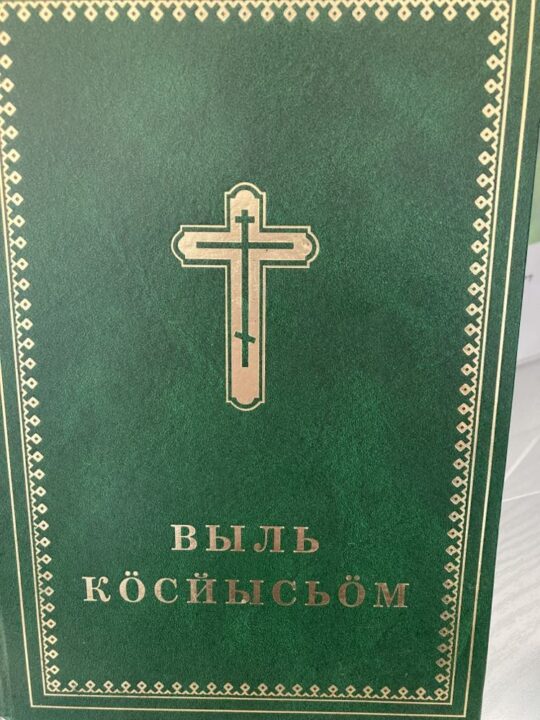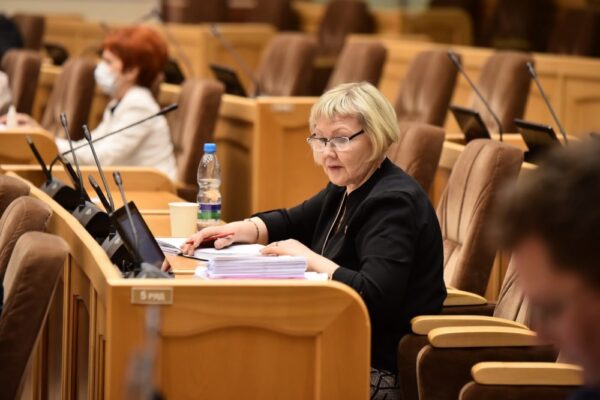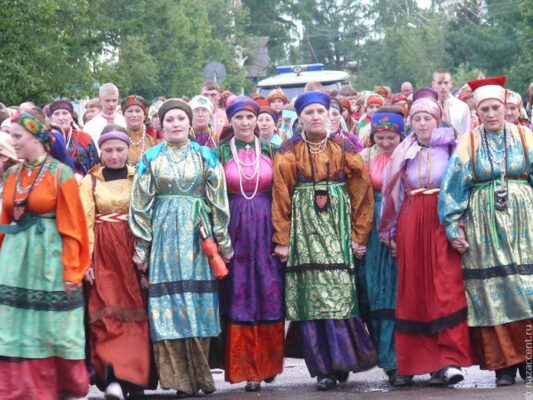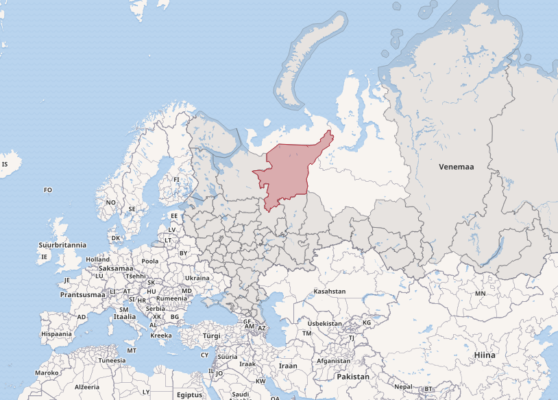The Bible in Komi
The Komi Bible has been produced and published in Komi-Zyrian in cooperation with the Finns and with the support of Finnish church circles.

The Komi Bible has been produced and published in the Komi-Zyrian dialect in cooperation with the Finns and with the support of Finnish church circles. The translation took more than 30 years to complete and the main translators were three Komi linguists: Nina Vattuleva, Iraida Popova and Nadezhda Gabova. The first printing of the Bible is 5,000 copies, which Vattuleva says is not very large, but will be enough for more enthusiastic readers. Raili Greidan contributed from Finland. The manuscript of the Bible went to press in Minsk on 21 August 2023 and from there it has now returned to the Komi Republic.
In fact, already during the Soviet era – between 1935 and 1981 – Vassili Popov, the founder of the Komi Evangelical Congregation or Komi Church, secretly translated the Bible and handed over the manuscript to the Bible Translation Institute. The translation team continued his work, with the aim of creating a text that would be understandable to the current generation. The Komi Bible is only the second Bible to be published in its entirety in the mother tongue of a Russian ethnic region. The Udmurt Bible was the first to be completed: in 2013, the Komi-Permyak translation is in progress.
Although the Komi translators are from the Evangelical Lutheran Church, they also worked closely with the Russian Orthodox Church. Within the Orthodox Church, the desire to support native-language activities varies greatly, depending on the people. The Komi Orthodox Church has been influenced by the native Komi (holy father) Nikolai Razmyslov, with whom the translators maintained a constant dialogue on issues that arose during the course of the project concerning the particularities of the Komi spiritual text. The team was assisted by others, such as linguist Yevgeny Igushev.
The test translations were tested with a large number of readers, as is usually the case with Bible translation. The Komi Bible texts were tested with 300 Komi, representing a wide spectrum of people: for example, there were both learned and less-educated Komi, those who knew the Bible and those who were looking at it for the first time.
From a linguistic point of view, the Komi Bible is of great importance: the vocabulary is enriched and captured in a carefully polished collection of texts. The numerous books of the Bible are very varied, both in subject matter and vocabulary, and the Komi language is enriched stylistically by the use of spiritual language.
Nina Vattuleva talks about translating the Bible in the popular TV show Vochakyv.


